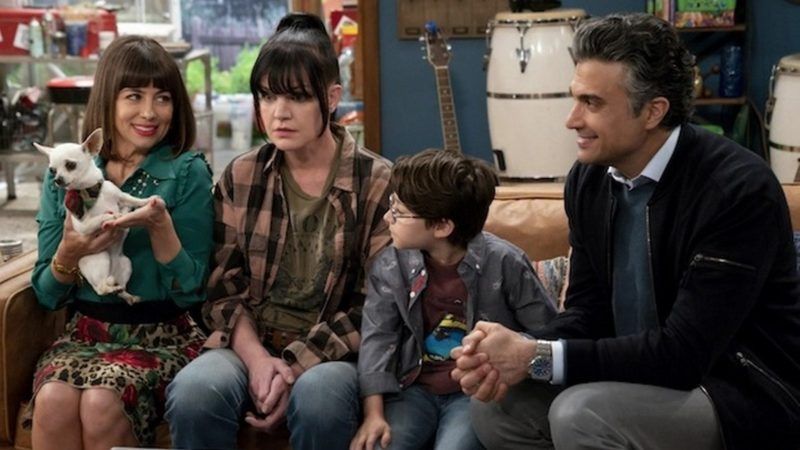Broke Is the Perfect New Sitcom for Our Sudden Economic Downturn
You don’t have to wallow at home alone.

Broke. CBS. Thursday, April 9, 9:30 p.m.
Most mainstream economists agree that the country isn't technically in a recession until sitcoms about busted blue-collar families appear on three major broadcast networks at the same time. With the arrival of CBS' disarmingly funny Broke, we're officially insolvent, and you can play your old Gary (U.S.) Bonds records until your agonized neighbors use broken shards of mirror to slash their faces, or possibly yours. (Warning: I don't know if this works with mp3s. Let me know.)
Broke, due to schedule flip-floppery beyond the control of even the most awesomely mighty TV critic, actually debuted on April 2. But you can easily watch the pilot for free on the streaming CBS All Access or the video-on-demand services of most cable and satellite systems. Whatever little buttons you've got to push, it will be worth it. Broke crackles with acerbic wit and precision-timed physical humor.
Whether the chance debut of Broke in the middle of a coronavirus plague that's triggered the worst unemployment in four decades is amazingly good luck for CBS, or suicidally awful, remains to be seen. Maybe the show will resonate with millions of jobless Americans; maybe, in an economy where there's no point in even looking for work because nearly everything is closed, they'll just click the remote on by in search of Wheel of Fortune.
If the virus does in Broke, it will be a shame. It's got the oddest bloodline of any show on network TV—it's adapted from two different comic telenovelas, Colombia's Pobres Rico and Mexico's Pobres Tan Rico—and it makes extensive use of subtitled Spanish subtitles. In some ways it's not about poverty, but rather a tale about reassembling a shattered family.
The show follows single-mom bartender Jackie (Pauley Perrette, NCIS) and her son Sammy (Antonio Raul Corbo, Brooklyn Nine Nine), living in a pockmarked Los Angeles suburb, so penniless that even their laundry basket is patched together (unsuccessfully) with duct tape. As another dreary morning begins, this one with an exploding microwave, they get a surprise visitor—Jackie's snobby and estranged sister Elizabeth (Natasha Leggero, He's Just Not That Into You) and her Gatesian-rich husband Javier (Jaime Carmil, Jane the Virgin). They want to make up and stay with Jackie, not necessarily in that order. Puzzled, but sensing an opportunity to get a new microwave out of the deal, Jackie agrees, but with an asterisk: "If you see something on your pillow, it's not a mint. Kill it."
The not-exactly-unforeseeable punch line is that the couple has whimsically spent Javier's entire trust fund, including a big chunk on a pyramid. (Not a pyramid scheme, an actual pyramid with a Mayan chief under it.) His father, surprisingly, has refused to refill the cash tank. Jackie's triumphalist smackdown is a terse summation of the sisters' fraught relationship: "You're broke in Reseda, just like I am."
The gags follow thick and fast, much like the posh Eurotrash accent that Elizabeth has unaccountably adopted. Jackie, roughened by a thousand hurts real and sometimes imaginary, is sharply cynical. Javier is a smooth Latin-lover wastrel, but so bewitchingly elegant in his hoodwinkery that Jackie snaps at him: "Stop being charming when I'm angry!" Javier's ever-faithful manservant and straight man (inside joke there) Luis (Izzy Diaz, Snowfall) is no slouch in the charm department, either.
Perrette often injected comic elements into the otherwise grim NCIS during her 15-year gig as an eccentric goth-girl forensic scientist. But her absolute hilarity in Broke is a reminder she was once a full-time comedienne, with regular appearances on Frasier and The Drew Carey Show. Equally funny is Carmil, who played the same role in the Broke's Mexican telenovela version and clearly knows how the show is supposed to work—he's one of the executive producers. Together with the rest of the excellent cast, they manage to find some rueful smiles in being without jobs or money. We're going to need that for a long while.

Show Comments (14)